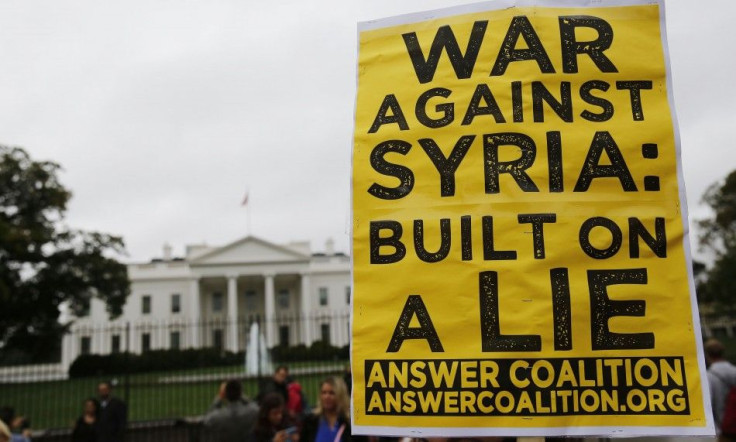Airstrikes Against ISIS Has Claimed Innocent Lives In Syria, Dubbed ‘Ineffective’ By Jihadi Fighters, US Military To Ask For More Spending Money

The United States has been estimated to have spent close to $1 billion on its war to eradicate the terror group ISIS. A jihadi fighter, however, has touted the airstrikes launched by the U.S. and its allies were ineffective. Proof of such could be that the civilian casualties caught in the middle ground have been growing each passing day.
The Syrian Observatory for Human Rights, a U.K.-based human rights organization, has said the recent U.S.-led airstrike in Syria only gave off civilian casualties while wounding militants. Pentagon said in September that they have identified bombing targets where the ISIS were believed to be holding stations.
The area recently bombarded by the U.S.-led airstrikes were the mills and grain storage areas in the northern Syrian town of Manbij for an Islamic State base. Washington has yet to comment on the alleged misinformed decision.
But Abu Talha, a 28-year-old Syrian ISIS fighter, could only laugh off their wrong moves. "We've been ready for this for some time," Abu Talha told CNN. "We know that our bases are known because they're tracking us with radars and satellites, so we had backup locations."
This was confirmed by an ISIS defector who recently left the group. A man, using the name Abu Omar, told CNN the radical militants knew one way or the other how the U.S. would react to its gruesome activities that way before the coalition ever announced its strikes, they had already prepared their game plan.
"They almost entirely emptied out the headquarters," Abu Omar said. Their equipment were scattered, some hidden in civilian neighborhoods, some underground.
Rami Abdulrahman, who runs the Syrian Observatory, appeared to have confirmed from sources in Syria that the strikes in Manbij only managed to kill civilians, not ISIS fighters.
The civilian casualties were identified as workers at the grain silos, who "provide food for the people."
Seemingly, everything is just a simple child's play, or a tug-of -ar game for the jihadi fighters. When they get struck in one area, they will then move on to other locations, Abu Talha said. "If we are pushed back in Iraq, we advance in northern Syria. These strikes cannot stop us, our support or our fighters."
The U.S.-led airstrikes had bombed oil refineries controlled by the ISIS, but this failed to alarm the terror group because they have other sources of revenues apart from oil. "Our finances are not going to stop just because of oil losses," the militant said.
Chuck Hagel, U.S. defense secretary, said over the weekend that the U.S. military is spending $10 million daily for this endeavour. It is bent to ask Congress for more funding since the war with ISIS remains uncertain.
On Monday, the Center on Strategic and Budgetary Assessments (CSBA) said the airstrikes hurled against the ISIS have cost the U.S. some $780 million to $930 million between Aug 8 until Sept 24.





















